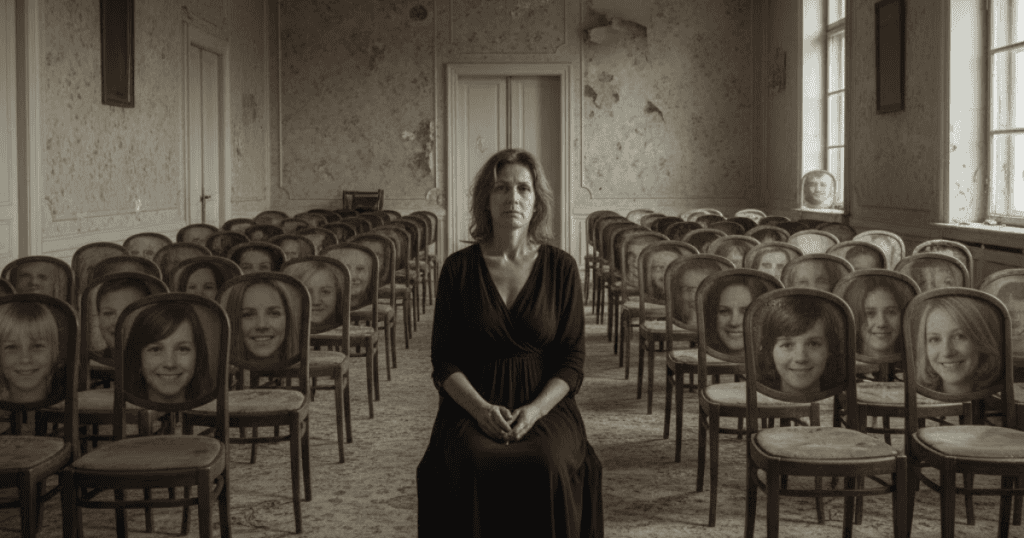They look untouchable, like ticking time bombs made of charm, confidence, and control.
Narcissists move through life as if immune to consequence, their image tightly wound and perfectly curated.
But what most people don’t see is that the fuse has been burning all along.
Their downfall isn’t explosive. It’s inevitable.
They construct empires of admiration, but every word, every manipulation, every betrayal is another crack in the foundation.
Many survivors secretly wish for karma to come swiftly, for the narcissist to finally “get what they deserve.”
But the truth is, they already are.
Their punishment isn’t a single moment of exposure, but the slow decay of the world they built on illusion.
The collapse seeps in quietly, one lost admirer at a time.
Table of Contents
The Beginning of Every Narcissist’s Story

Every narcissist begins like a fairy tale character. Charming, magnetic, almost larger than life.
They are masters of presentation, studying and reading people the way a chess player studies patterns.
They learn what makes others feel seen, heard, and valued, not because they care, but because they can use it later.
In my narcissistic family, my mother was the sun, everything revolving around her.
She carried herself with grace and poise, and to outsiders, she seemed the embodiment of strength.
At PTA meetings, she spoke eloquently. At church, people gravitated toward her confidence.
But at home, that light turned harsh.
Praise was a rare reward, and love was rationed like oxygen.
Narcissists promise belonging: “I’ll protect you,” “I’ll guide you,” “I’ll love you like no one else can.”
But behind every promise is a contract you never signed.
They study your emotional currency, your empathy, guilt, and loyalty, and use it to fund their illusion of superiority.
My toxic sister mirrored her.
She learned early how to weaponize charm, smiling sweetly to get what she wanted, turning cold when she didn’t.
What looks like a connection is really control.
Narcissists don’t seek relationships. They seek supply.
And that’s the seed of their destruction. The very people they use to inflate their ego are the ones whose absence will one day deflate it.
When the Mask Slips

The Shift You Never See Coming
The first shift is so subtle you can barely name it.
One day they praise you, the next they mock you, but in a way that sounds like “constructive criticism.”
The tone changes, but the words seem reasonable.
You second-guess your instincts because gaslighting doesn’t announce itself. It whispers.
My narcissistic sibling once told me I “wasn’t built for leadership” right after I got promoted at work.
Her face was neutral, her tone calm, but something sharp hid behind her smile.
I laughed it off and convinced myself that she was just “being protective.”
But that’s how they hook you. Through confusion that feels like care.
The narcissist’s confidence turns cruel. Their admiration curdles into ridicule.
They start testing how much control they have over your emotions.
You start shrinking, dimming, and apologizing for existing too brightly.
The Emotional Aftermath
Over time, your emotional compass spins out.
You no longer trust your perception because every boundary has been blurred.
My self-absorbed brother was the master of rewriting reality.
“You’re exaggerating,” he’d say when I confronted him for breaking my trust. “You always make everything about you.”
That sentence became my leash for years.
I started policing my own emotions, trying not to be “too much.”
But every attempt to please him only deepened his power.
Narcissists thrive on that cycle: hurt, blame, soothe, repeat.
And yet, here’s the turning point narcissistic abuse survivors don’t see coming: the erosion of your self-worth is also the beginning of their downfall.
The more they drain you, the more dependent they become on the very energy they destroy.
It’s like drinking poison to survive.
They don’t realize that every time they make you doubt yourself, they’re quietly severing their own supply line.
The Truth Beneath the Mask: A Life of Misery in Disguise

From the outside, narcissists look like success stories.
They collect admiration, money, followers, and achievements, which are trophies of validation that keep their illusion alive.
But beneath that shine lies emotional bankruptcy.
There was one afternoon when I found my toxic mother sitting alone and staring at old photographs, eyes fearful rather than nostalgic.
She said, “People change when they see who you really are.”
It was the closest she ever came to admitting anything.
That’s the hidden truth: they know.
On some level, they know the image they project isn’t real.
But the moment they confront that truth, their entire identity threatens to collapse.
So they double down and give more manipulation, more denial, and more noise to drown out the silence inside.
When the world stops mirroring their greatness back to them, they face an unbearable void.
They don’t experience genuine love or peace, only transactions.
Their so-called confidence is just armor over wounds they’ll never let heal.
They can’t afford vulnerability because the moment they admit weakness, the illusion of control disappears.
So, they keep performing, even when the stage is empty.
When Karma Finally Shows Up

The Slow Decline
Karma for narcissists is never cinematic. It unfolds quietly.
Control slips in the most humiliating ways, like a missed promotion, a friend who stops returning calls, a spouse who finally walks away without explaining.
My sister’s unraveling began the day her best friend stopped answering.
For someone who lived off attention, silence was unbearable.
She started overcompensating, posting inspirational quotes about “fake people” and “loyalty.”
But everyone could see that the façade was crumbling.
This is how karma operates for them. Not as cosmic punishment, but as the natural consequence of their own toxic behavior.
They burn bridges and alienate allies.
They become predictable in their manipulation, and people start connecting the dots.
The irony is that the exposure happens organically. They dig their own graves one lie at a time.
The world simply wakes up.
The Fall From Grace
The fall is brutal because it’s public.
Narcissists go from admired to avoided. From envied to pitied.
When my narcissistic brother’s colleagues finally saw through his charm, his reputation crumbled overnight.
He tried to regain control with smear campaigns, claiming everyone was “jealous.”
But his words carried less and less weight.
His power depended on people believing him, and that belief was gone.
Desperation makes narcissists sloppy. They start oversharing, overacting, and overcompensating.
Their lies lose rhythm. Their charm becomes transparent.
What used to seem like confidence now looks like insecurity in disguise.
Then they become storytellers of tragedy: misunderstood, betrayed, “always the one who gave too much.”
But the truth no longer sticks because the audience has already seen the script before.
The Narcissist’s Downfall

Their downfall doesn’t come from one big confrontation. It’s the ripple effect of truth spreading naturally.
One person finally speaks up, then another finds the courage to do the same.
Stories align, and the illusion unravels.
I saw this with my toxic parent.
For years, her friends believed every sob story she told about being “the one who carried everyone.”
But when my cousin gently mentioned how controlling she could be, it was like lighting a match.
Others shared similar stories, the manipulation, the silent punishments, the emotional debt she made everyone owe.
When truth becomes a pattern, their mask disintegrates.
People stop second-guessing themselves.
The narcissist’s charm loses its edge, so they panic. They lash out, smear others, project blame, or retreat into victimhood.
Every outburst only exposes more of what they are.
And for the first time, people see clearly.
Not the “strong mother” or “confident sister,” but a frightened, desperate person fighting to keep control over a narrative that no longer works.
The most poetic part of their downfall is that it’s self-inflicted.
Every manipulation, every lie, and every betrayal circles back through visibility.
The Final Chapter: The Loneliness They Created

Life Without Supply
Eventually, the stage empties, their audience moves on, the phones stop ringing, and the admirers disappear.
The narcissist faces their greatest fear: irrelevance.
My mother’s house is quieter now.
Once filled with guests, laughter, and performance, it has become a museum of nostalgia.
She occasionally calls me to reminisce, but I can hear the emptiness behind it.
There’s no audience left to applaud her version of events.
Without supply, their false identity collapses.
They might chase new attention, like romantic partners, online followers, even strangers on social media, but it’s fleeting.
Because what they want isn’t connection but control.
And when new people don’t feed that, they move on, leaving the narcissist trapped in the same loop of abandonment they swore would never happen.
The silence becomes their mirror.
It reflects the truth they’ve run from all their lives: without someone to manipulate, they don’t know who they are.
What They Tell Themselves
To survive that silence, they rewrite the story.
- “You were ungrateful.”
- “You turned on me.”
- “I gave everything, and you ruined it.”
My brother now lives in that script.
Every conversation is a monologue about how “no one understands” him.
He’s surrounded by people yet utterly alone, because relationships built on manipulation always rot from the inside.
They cling to the delusion because the alternative would mean facing their core wound.
The unbearable belief that they are unlovable.
Their ego is a fortress built to protect that wound.
And when the walls finally crack, they scramble to rebuild them with denial and projection.
But denial can’t fill the silence forever. Eventually, all they have left is their reflection, and even that betrays them.
Why You Don’t Need to Wait for Karma

If you’ve ever caught yourself wondering, “When will they finally pay for what they did?” remember that they already are.
Every day they wake up needing to perform for validation is punishment enough.
Every time they have to manipulate someone just to feel alive, they suffer the consequences of their own design.
They don’t get peace. They don’t get intimacy. They don’t get growth.
They just get repetition.
Meanwhile, you get to evolve. You get to rebuild trust in yourself and to live a life that doesn’t revolve around walking on eggshells.
That is karma’s true justice: they stay trapped in the cycle, while you get to leave it.
I used to wait for the day my mom would apologize, or my selfish siblings would finally see what they’d done.
But the real closure came when I stopped needing their recognition.
When I stopped explaining myself to people who thrived on misunderstanding me, I realized that that was my liberation.
You don’t need to witness their collapse to know it’s happening.
Every lie they told has a half-life. Every illusion has an expiration date.
Their ending is unfolding, quietly, slowly, inevitably.
Their End Is Not Your Closure

True justice isn’t what happens to them. It’s what stops happening to you.
No more self-doubt. No more shrinking yourself for their comfort. No more confusing manipulation for love.
Your healing is the evidence of their loss.
You don’t need to wait for their downfall because you’ve already survived it.
My peace didn’t come when my mother grew old and alone, or when my brother lost his charm with time.
It came the day I finally stopped wishing for karma.
Because peace, not revenge, is the final verdict.
And that’s the ultimate irony.
The narcissist’s punishment is living a life where no one believes the act anymore, and your freedom is no longer caring if they do.
Related posts:
- 8 Ways to Make People Finally See Narcissists for Who They Really Are
- Why Narcissists Can’t Stand Being Alone (The Part They’ll Never Admit)
- 6 Stages of a Narcissist’s Revenge (And How to Stay 3 Steps Ahead)
- 23 Polite Insults That’ll Leave Narcissists Speechless (They Won’t Even Realize You Roasted Them)
- 3 Subtle Ways That Make a Narcissist Feel Exactly What They Put You Through



Such a fantastic article!!! Wow!!
Thank you!